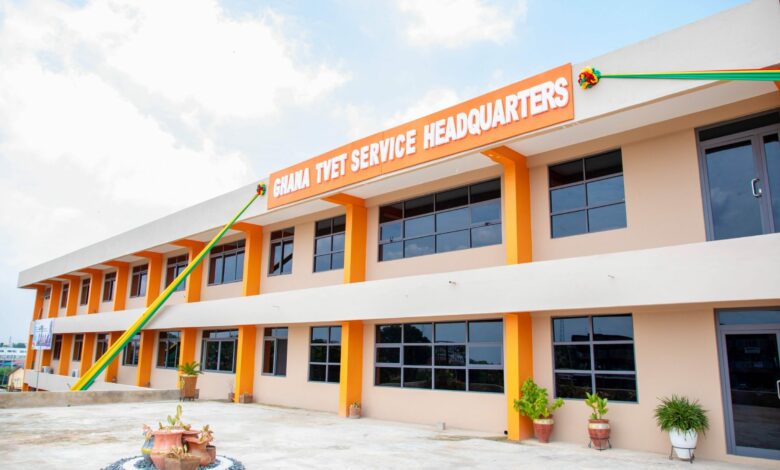The Role of STEM and TVET Reforms in Shaping Ghana’s Future Workforce

Ghana, like many developing nations, stands at a critical juncture where the demands of a globalized, technology-driven economy must align with the nation’s educational strategies. While the Free Senior High School (SHS) policy garners considerable public attention, equally transformative—and perhaps more critical in the long term—are the ongoing reforms in Science, Technology, Engineering, and Mathematics (STEM) education and Technical and Vocational Education and Training (TVET). These efforts are poised to redefine the country’s human capital landscape and strengthen its economic resilience in a rapidly evolving global job market.
The STEM Imperative
The Fourth Industrial Revolution is reshaping industries with artificial intelligence, robotics, biotechnology, and renewable energy at its core. In this context, a robust STEM foundation is not a luxury—it is a necessity. Ghana’s Ministry of Education has identified this trend and responded by prioritizing STEM integration at all levels of education. The establishment of STEM-focused high schools, including the Bosomtwe STEM Academy and Abomoso STEM School, signifies the government’s commitment to nurturing a generation that is not only literate but also technologically fluent.
These institutions are equipped with modern laboratories, 3D printing facilities, robotics kits, and computer-aided design tools, offering students hands-on learning experiences. Curriculum reforms are also underway to shift from rote memorization to inquiry-based learning, fostering critical thinking, collaboration, and innovation. By equipping students with 21st-century skills, Ghana aims to close the digital divide and improve its competitiveness on the global stage.
However, STEM education faces several challenges. There remains a shortage of qualified STEM teachers, particularly in rural areas, and an imbalance in gender participation, with fewer girls pursuing science and technology fields. Addressing these issues will require sustained investment in teacher training, infrastructure, and gender-sensitive policies that actively encourage girls to pursue STEM careers.
TVET: The Engine of Practical Skills Development
While STEM prepares students for high-tech innovation, TVET reforms are essential for building a technically skilled workforce ready to meet the immediate needs of industry and entrepreneurship. For years, technical and vocational education in Ghana was perceived as a “last resort” for students who failed to qualify for academic tracks. This perception has started to shift thanks to strategic government policies and institutional realignment.
The establishment of the Commission for TVET (CTVET) and the Ghana TVET Service in 2021 streamlined oversight and policy implementation. These institutions are working to standardize curricula, introduce competency-based training (CBT), and forge stronger partnerships with industry stakeholders to ensure students graduate with relevant, market-driven skills.
One notable initiative is the Ghana TVET Voucher Project (GTVP), funded by the German government and implemented in partnership with CTVET. This project offers training vouchers to individuals in the informal sector, enabling them to upskill in areas such as welding, cosmetology, masonry, and electrical installation. Over 25,000 artisans have already benefited from this program, helping to formalize and enhance productivity in the informal economy.
TVET institutions are also being rebranded and re-equipped with state-of-the-art facilities, including technical labs, computer-aided manufacturing tools, and simulation equipment. Schools like Accra Technical Training Centre and Takoradi Technical University are becoming centers of excellence, offering advanced diploma and degree programs in engineering, applied sciences, and business.
Bridging the Gap Between Education and Industry
A recurring criticism of traditional education systems across Africa is the disconnect between academic learning and industry needs. In Ghana, the STEM and TVET reforms are consciously bridging this gap. Industry partnerships, apprenticeships, and work-study programs are being integrated into school curricula to ensure that students gain practical experience alongside theoretical knowledge.
The Private Sector Foundation, in collaboration with the Ministry of Education, is facilitating internship programs that place students in real-world job environments. This not only enhances their employability but also allows employers to shape future professionals according to current and projected industry demands.
Furthermore, the introduction of national skills competitions—modeled after global platforms like WorldSkills—encourages young Ghanaians to pursue excellence in technical fields. These competitions promote innovation and offer a platform for students to showcase their talents on both national and international stages.
The Role of Digital Transformation
Both STEM and TVET reforms are being supported by the integration of digital technologies. The COVID-19 pandemic underscored the importance of remote learning platforms and digital literacy. In response, Ghana has ramped up efforts to digitize learning resources, expand internet access, and provide teacher training in e-learning pedagogy.
Platforms like iCampusGH and Learning Management Systems (LMS) such as Moodle are now widely used to supplement classroom teaching. The introduction of coding clubs, robotics competitions, and virtual science fairs further enrich the learning experience and prepare students for future job markets increasingly dominated by technology.
Challenges and the Road Ahead
Despite the progress, several challenges remain. Infrastructural deficits, especially in rural areas, limit access to modern STEM and TVET facilities. Funding gaps, curriculum inconsistencies, and a lack of public awareness about the benefits of these educational paths also hinder broader adoption.
To address these concerns, policy coherence and stakeholder collaboration are crucial. The government must continue to align its educational goals with its industrial and economic development strategies. Donor agencies, NGOs, and the private sector must also play an active role in scaling successful initiatives and introducing innovations.
Additionally, shifting societal perceptions is essential. Public campaigns that celebrate successful professionals from STEM and vocational backgrounds can help reframe these career paths as prestigious and rewarding.
Ghana’s STEM and TVET reforms represent a bold, forward-thinking strategy to build a resilient and future-ready workforce. By embracing technology, enhancing practical skill development, and aligning education with industry needs, Ghana is positioning itself to not only reduce youth unemployment but also to emerge as a hub for innovation and sustainable development in West Africa. The journey is far from over, but the foundation being laid today is promising a brighter, more inclusive, and prosperous future for generations to come.
Source: Thpressradio.com| Ogyem Solomon




